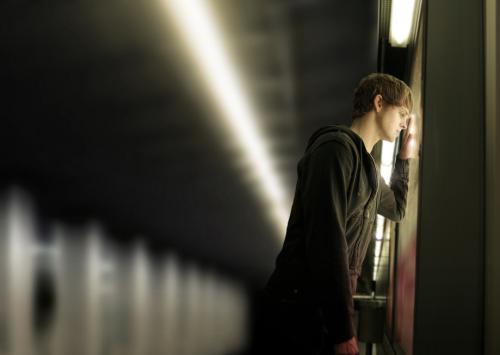I'm Not Sleeping Well

We've been hit by loss. Everything seems to have changed. Our lives have been upended, and even our sleep is disrupted. Fatigue becomes the norm.
From the Grieving Heart:
I'm not sleeping well.
I have trouble getting to sleep. I toss and turn. I can't seem to get comfortable. My mind races.
And inevitably, laying there in the dark, I find myself thinking about you. That doesn't help, but I can't drive you from my brain. I don't want to. I want to remember. I want to think about you. But I want to sleep too.
Sometimes I lay there for hours. Other nights I cry myself to sleep. If I read, that seems to help.
I wake up a lot. I have dreams that are not always pleasant. I'm looking for you even in my sleep. Some nights I wake anxious or even panicky. When morning finally arrives, I'm anything but refreshed.
I walk around in a daze. I'm tired all the time. I end up drifting off at work. I get drowsy in the car. This is not good.
What do I do with this? Do I need help? Do I need medicine?
I keep hoping this will get better, but it goes on night after night. Even if I do sleep one night, there's no guarantee about the next. I'm starting to get anxious about this, and I dread nighttime.
No, this is not good.
Our sleep is disturbed.
For restful sleep to occur, most of us need a sense of normalcy and safety. When we get smacked by a loss, normalcy disappears, and our personal sense of safety and wellbeing can be shaken. Sleep disturbances are a natural result.
Life has changed. Nothing is the same, including our sleep. When we lie down and the distractions fade, thoughts that we’ve been keeping at bay drift back into our consciousness. Our minds begin to race. We think about what happened, when, how, and why. We ask the numerous unanswerable questions and ruminate on them, over and over. We imagine what we could have done, if we had only known. Though it’s time to wind down, our emotions may be gearing up.
Falling asleep becomes difficult. Staying asleep becomes a challenge. Even if we sleep, resting peacefully and waking refreshed is not the norm in grief.
It has been said that sleep deprivation is the most basic form of torture. Given the fact that grief isn’t a quick journey, it’s not surprising that we feel cranky, irritable, sad, anxious, or depressed. With sleep patterns altered, no wonder work performance and relationships are more of a challenge.
Letting our doctor know what's happening and what we're going through is important. There is no shame in seeking some help to get good sleep and pursue better health during this time. There are many options, both medical and natural. We should consult someone we trust. What has been helpful to others in grief? What seems to fit best with who we are and our situation? What can we do to get more of the rest that we need?
We're not crazy. Sleep disturbances in grief are common. We can be patient with ourselves and take the next step toward taking good care of ourselves during this time.
Affirmation:
My life is disturbed, so it makes sense my sleep would be too. I’ll focus on grieving well and trust this will change over time.
Adapted from the newly released book, Comfort for Grieving Hearts: Hope and Encouragement for Times of Loss.
Article Images




Comments